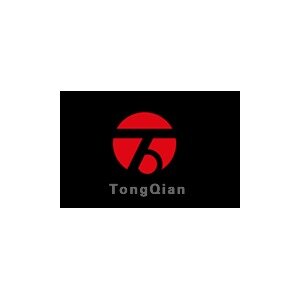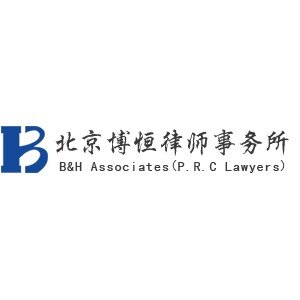Best Land Use & Zoning Lawyers in China
Share your needs with us, get contacted by law firms.
Free. Takes 2 min.
Free Guide to Hiring a Real Estate Lawyer
Or refine your search by selecting a city:
List of the best lawyers in China
About Land Use & Zoning Law in China
Land Use & Zoning Law in China governs how land within the country is utilized and developed. It is a complex field that intersects with environmental regulations, urban planning, and economic development. Given China's rapid urbanization and economic growth, these laws are critical for ensuring sustainable development. The legal framework consists of national laws, local regulations, and planning standards that dictate land usage, addressing both rural and urban areas. The key legislation includes the Land Administration Law, which manages state ownership and use-right assignments, and various zoning regulations that define permissible activities in specific areas.
Why You May Need a Lawyer
There are several common scenarios where legal advice may be necessary:
- Acquiring land for development, where understanding ownership rights and potential restrictions is crucial.
- Engaging in construction projects that require adherence to zoning laws and environmental regulations.
- Disputes over land boundaries or usage rights between individuals, companies, or with government entities.
- Commercial ventures seeking to understand permissible business activities within specific zones.
- Challenges posed by expropriation or changes in land use policy that impact existing ownership or business operations.
Local Laws Overview
China's land use regulations are informed by both national and local laws, which may vary significantly based on the region. Key aspects include:
- Land Administration Law: Defines rights and responsibilities concerning land ownership, use rights, and transfer procedures.
- Urban and Rural Planning Law: Establishes a framework for planning and development, ensuring orderly urban expansion.
- Zoning Regulations: Detailed guidelines outlining permitted land uses (residential, commercial, industrial, etc.) within specific areas, tailored to local needs.
- Environmental Regulations: Ensures that land use complies with environmental preservation goals, important for both developers and community stakeholders.
Frequently Asked Questions
1. What is the difference between land ownership and land use rights in China?
In China, the state owns all land, while individuals and entities can hold land use rights to develop or utilize the land within the specified terms.
2. Can foreign entities purchase land in China?
Foreign entities cannot own land directly; instead, they can acquire land use rights under certain conditions and for specific durations, primarily through joint ventures or leasing agreements.
3. How are disputes over land use or boundaries resolved?
Land disputes are usually resolved through negotiation, mediation, or litigation within the legal framework established by relevant local courts.
4. What are the penalties for violating zoning laws?
Penalties can include fines, suspension of activities, rectification orders, or, in severe cases, criminal prosecution depending on the nature and severity of the infraction.
5. Is public consultation required for zoning changes?
Yes, public consultation is typically required, especially for significant changes, to incorporate public input and address community concerns.
6. How do I find out the zoning regulations for a specific area?
Zoning regulations can be obtained from local planning departments or government websites, which provide detailed plans and permissible activities.
7. Can land use rights be transferred or leased?
Yes, land use rights can be transferred, leased, or mortgaged, subject to the terms of the land use contract and approval by relevant authorities.
8. Are there taxes associated with land use or development?
Yes, taxes and fees often accompany land transactions, development activities, and the continued use of land, including land value-added tax and urban land use tax.
9. How does land expropriation work in China?
Land expropriation is generally conducted for public interest projects, with compensation given to the holders of land use rights according to statutory guidelines.
10. What role do local governments play in land use regulation?
Local governments play a significant role by implementing national policies, setting local zoning plans, and managing land-related administrative activities.
Additional Resources
For more assistance, consider reaching out to:
- The Ministry of Natural Resources: Manages national land use policies and regulations.
- Local Planning Departments: Provide the most relevant zoning plans and guidelines for specific areas.
- Professional legal firms specializing in land use and zoning: Offer tailored advice and representation in complex cases.
Next Steps
If you require legal assistance in land use and zoning matters, consider the following steps:
- Research and identify reputable law firms or attorneys specializing in land use and zoning within the region of your interest.
- Prepare all relevant documentation regarding your land use or zoning issue to assist your lawyer in providing accurate advice.
- Schedule a consultation to discuss your specific needs and understand the legal framework that pertains to your situation.
- Evaluate the legal strategy and services proposed by your chosen legal professionals to ensure alignment with your goals.
Lawzana helps you find the best lawyers and law firms in China through a curated and pre-screened list of qualified legal professionals. Our platform offers rankings and detailed profiles of attorneys and law firms, allowing you to compare based on practice areas, including Land Use & Zoning, experience, and client feedback.
Each profile includes a description of the firm's areas of practice, client reviews, team members and partners, year of establishment, spoken languages, office locations, contact information, social media presence, and any published articles or resources. Most firms on our platform speak English and are experienced in both local and international legal matters.
Get a quote from top-rated law firms in China — quickly, securely, and without unnecessary hassle.
Disclaimer:
The information provided on this page is for general informational purposes only and does not constitute legal advice. While we strive to ensure the accuracy and relevance of the content, legal information may change over time, and interpretations of the law can vary. You should always consult with a qualified legal professional for advice specific to your situation.
We disclaim all liability for actions taken or not taken based on the content of this page. If you believe any information is incorrect or outdated, please contact us, and we will review and update it where appropriate.
Browse land use & zoning law firms by city in China
Refine your search by selecting a city.














